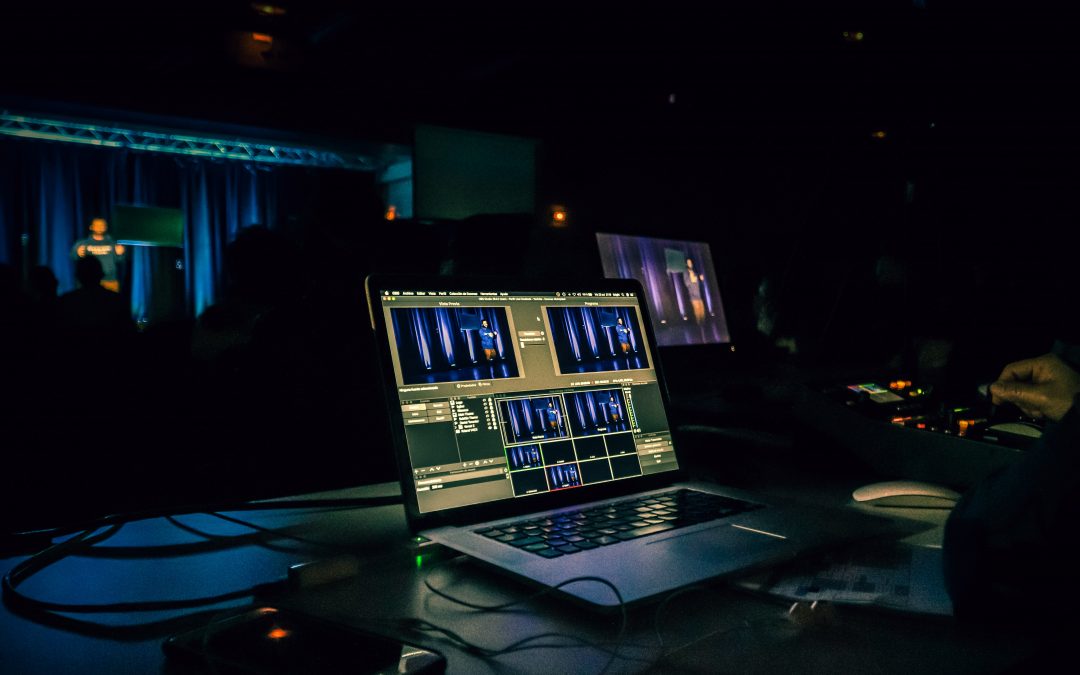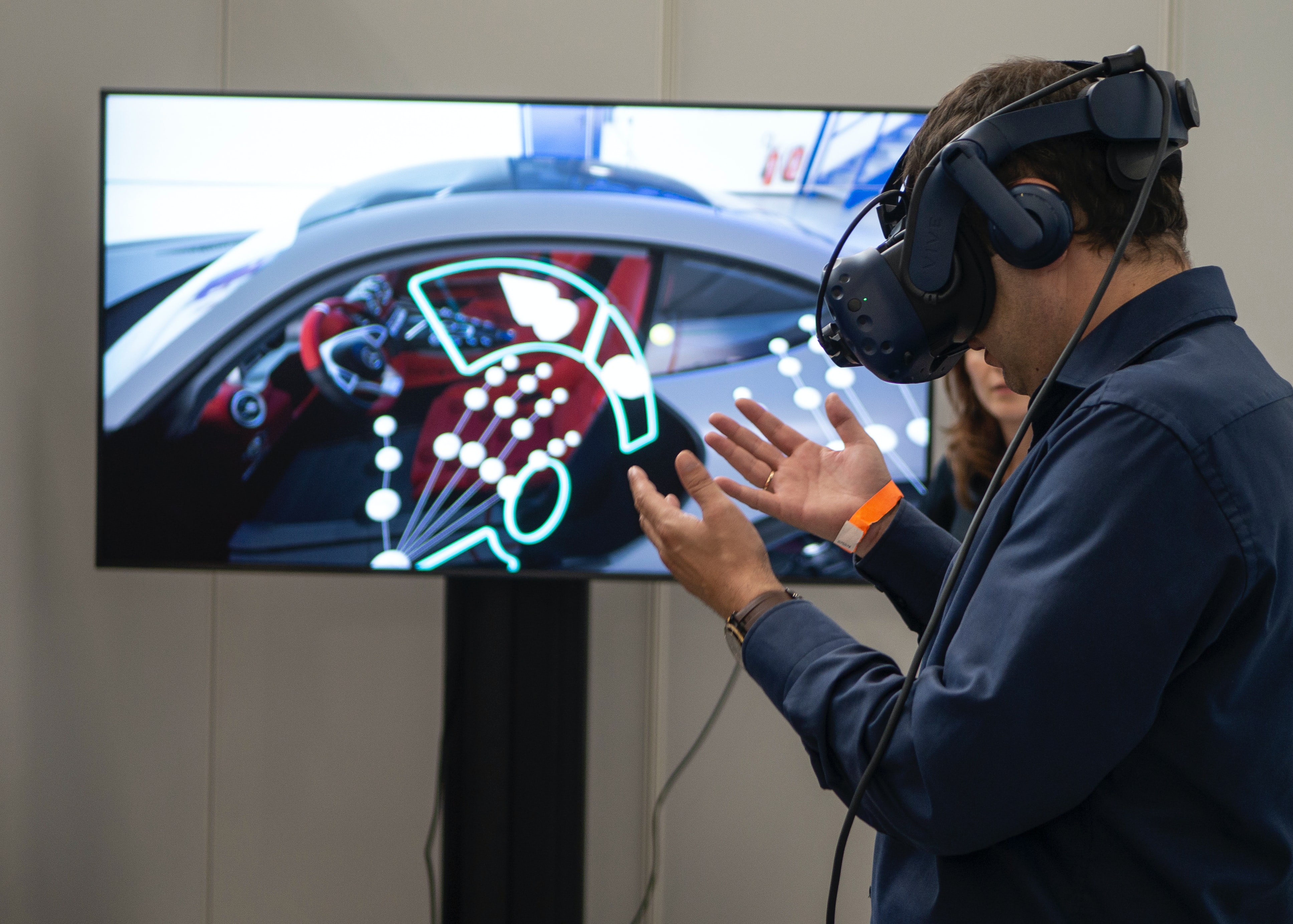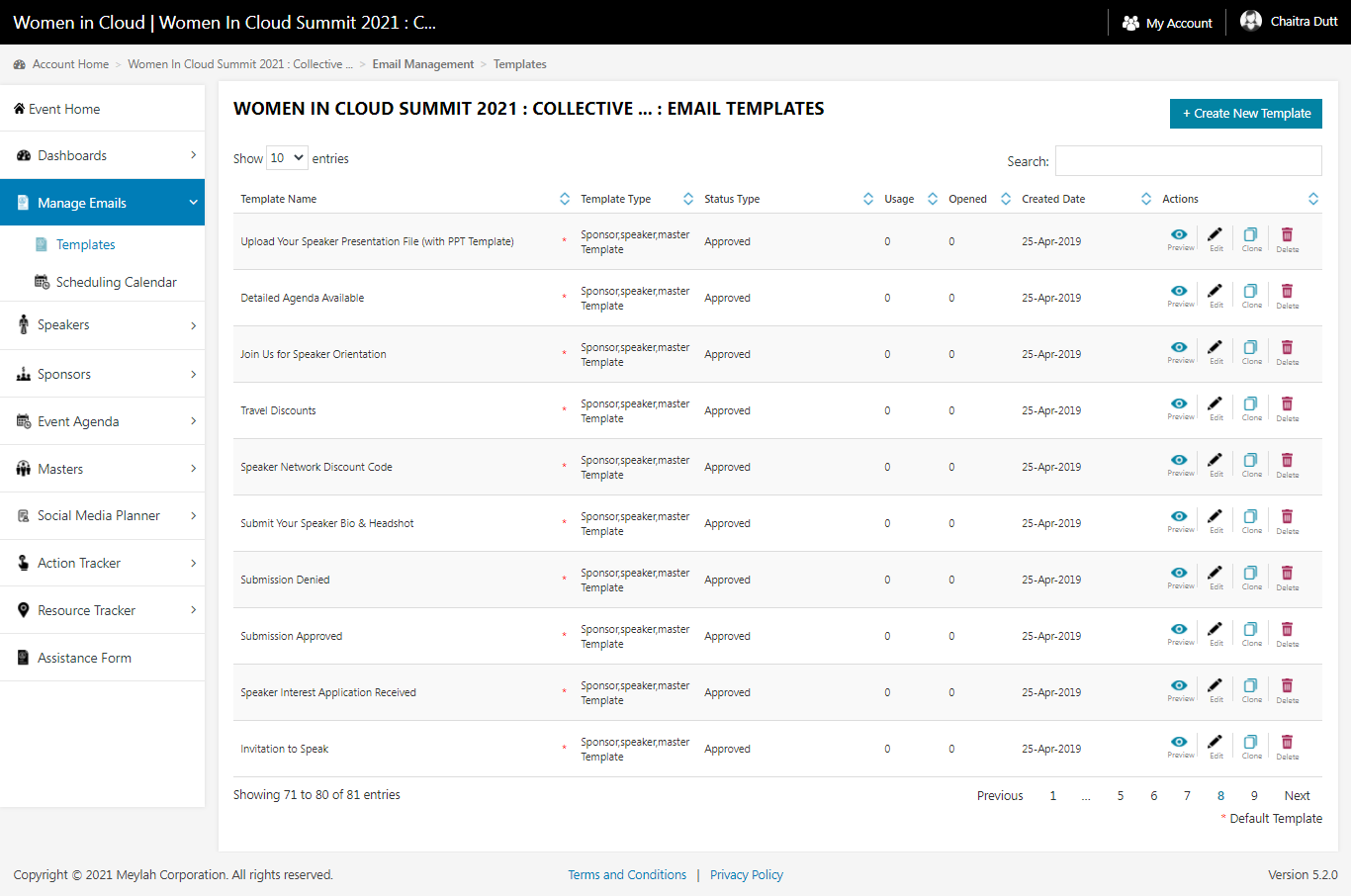
Oct 28, 2020 | Microsoft Teams Live
With the current global situation, it is indeed wiser to stream events online. As we move forward, the world learns to live through and with changing circumstances every day. There have been exponential digital advancements in the last couple of months in the event industry, with the sector being pushed online. The event industry has not only adapted but evolved with digital innovation, fitting into the new normal beautifully.
As always, the backbone of the event industry is its audience. Their satisfaction and experience encourage the industry to move forward, to create better and more impactful events. As the sector transformed digitally, the customer or the attendee interaction, satisfaction, and experience were also taken to a new level. The user journey was mapped and studied at every stage to make each experience better than the previous one.
Let’s take a look at a few areas that can be digitally transformed to benefit the attendee.
- Registrations
Registrations have always been a cumbersome process. The tiny text, multiple checkboxes, and not enough space to put in your e-mail ID are enough to frustrate anyone. With digital transformation in place, attendees will not have to struggle filling out papers or even forms.
Registrations can now be done through your already existing IDs, with Google, Facebook, Microsoft, and others. Event organizers make use of third-party tools to collect registrations, or these accommodate features into their applications. This way, the attendees are relieved of repeatedly typing in data and trying to scroll through multiple forms to see which box is yet to be filled. The virtual 2020 Virgin Money London Marathon that took place on October 4th saw over 35,000 participants worldwide. The marathon could be run from anywhere, and the miles would be tracked on their phones. The event even had its official app, powered by TCS. All you have to do to register and enter the event was download the app and register through it. There are more ways to garner attendees than hand them user-friendly methods to register. Find out what they are.
-
Live Stream
Previously, events had the drawback of being held at venues that were not accessible to all. It is not practical to purchase an entry to an event and fly halfway across the world to attend it.
With live streaming in the picture, anyone can attend events from literally anywhere. Digital transformation has granted event access to even the remotest corner of the world. An event could be held in New York, and someone from Sydney or London could be a part of it by logging in.
An event that made heads turn recently is the launch of the iPhone 12. On October 13th, Apple held a live streaming event to launch and update its new range of products. The live streaming experience was nothing less than magnificent, as it always is—millions of people across the world tuned in to watch the launch and to enjoy the experience.
- VR and AR
Event experiences are evolving even as we speak. As Virtual Reality and Augmented Reality make their way into the event space, attendees are introduced to immersive experiences.
Bringing AR and VR into events will help spike curiosity and incentivize people to attend and interact with fellow attendees. These technologies have primarily been used as promotional material at a few stalls across conferences and exhibitions. However, recently they are making their way to the mainstream event industry. Toyota is one such company that invests heavily in AR to wow its customers.
Esports is one of the verticals of the event industry that AR and VR thrive in. Esports championships taking place worldwide have attendees or participants take part from their homes, interact, play, and compete on VR or AR platforms. Britain even has its esports association to keep the attendees updated on their upcoming events.

-
Mobile-Friendly process
As mentioned before, the event industry rides on the attendee’s satisfaction. While events being accessible across nations is commendable, they must also be mobile-friendly to be truly accessible.
Not everyone has access to laptops, tablets, or even large screens to view events. All event-related processes from registrations to the final streaming and all processes in-between must be mobile-friendly.
It is not just a question of accessibility; it is also a question of generating user traffic via mobile phones. Out of 4.5 billion active internet users, 3.5 billion are active mobile internet users. Taking these numbers into consideration, it is wiser to host mobile-friendly events.
-
Attendee Powered Promotions
An event’s attendees are a powerful resource for promotion. Regardless of how far we’ve come in marketing techniques and strategies, the age-old ‘word-of-mouth’ marketing still prevails and holds great value.
All event attendees promote the events they attend by default. Either by telling people about it personally or by posting about it on social media. Posting on social media would increase the reach, and that is where attendee-powered promotions come in. These days, there are many tools available that help attendees post event-related content on social media without going through the hassle of preparing content themselves. All event streaming platforms now allow attendees to share pre-designed posts on the attendee’s social media. On Speaker Engage, however, the public sharing link enables event organizers to share the link with their attendees, who can easily then share pre-designed posts on their respective social media platforms. This way, event attendees do not have to spend time on phrasing, link, hashtags, and likes while posting about the event. One click and the post is up.
- Artificial Intelligence
The growing popularity of AI in understanding data and utilizing it for making decisions is an incredible ally in the event space. AI can be used to communicate with the attendees instead of having personnel for the same. Not only would AI respond faster, but they would also have quick solutions to attendee’s queries.
AI-powered chatbots have now become essential in the event industry. Mostly owing to the fact that there is a dearth of volunteers physically available to run around and help attendees. On virtual platforms, especially since it’s a new experience for many, queries would be pouring in from everywhere on everything ranging from software, hardware, agenda, and bandwidth issues. Chatbots are deployed with pre-programmed data that would help deliver the right solutions to attendees with a personal touch. For instance, 42Chat is one such chatbot that can be deployed for virtual experiences, from conferences, exhibitions, virtual events, live streaming, and even graduation ceremonies.
With digital transformation paving the way for smoother and better experiences for attendees, it is not a trend an event organizer can afford to ignore. The way forward is digital, be it for any industry, and it is here to stay. The onus is upon event organizers to ensure this transition to newer technologies is made easier for all.
Transform your event attendees’ experiences and make sure they come back for more. The only way to do so is to make sure you’ve organized an unskippable event. The only way you can organize events better and bigger than your previous ones is by managing your event using Speaker Engage. Get yourself a free demo with Speaker Engage and elevate your attendee experiences.

Oct 22, 2020 | Event Industry
The pandemic has unrolled a world where digital transformation is critical for survival. Regardless of the industry, you are part of, interactions must be moved to digital platforms, especially in the event industry, where attendance is usually in more significant numbers.
Hosting virtual events is not as easy as sending out zoom invites. Hundreds of variables come into play – starting from participants being hesitant to attend a virtual event to ensuring access to all participants. Adding on, there are other variables that aren’t in the control of the event management team, such as laptops running out of charge, microphones and earphones being faulty, or even noise from the participant’s or speaker’s surroundings. Keeping this aside, it is imperative to digitally innovate every stage of the virtual event to provide your participants’ and speakers’ a seamless transition.
Before we transform every stage, let us delve into the event industry’s broader facets, and how to change them digitally with a thorough event planning.
-
USER EXPERIENCE
The success of a virtual event lies in the participant’s experience. One of the key objectives of an online event must garner as much attendance as possible.
Since the digital transition has been relatively new, people would still be skeptical about attending online events. There are people out there who aren’t as tech-savvy as the rest of us. The event must cater to their requirements as well and should focus on complete audience engagement.
Technology or tools used at every stage must be intuitive and straightforward enough for anyone to get through with minimal or zero assistance. This way, participants will trust you considering the effort put across to ensure their convenience.
The future of the event industry lies in technologies such as Augmented Reality and Virtual Reality. It is time that the sector harnesses immersive experiences starting now. Incorporate immersive experience sessions to guide participants through the technology and its background – this way, you ensure your participants are ready for your future events.
Even though VR and AR have mainly been used for promotional purposes, the gaming industry have been involved in hosting all VR games for a while now. VR League is one such community that hosts championships for Esports. That’s right, all participants take part in the event in virtual reality. Few of the esports played at VR Leagues are Echo Arena, Onwards, Alyx, and so on. Grab a sneak peek into their fabulous world.
-
ARTIFICIAL INTELLIGENCE AND MACHINE LEARNING
Many speak about AI and ML taking over the world in the future. Well, news flash – it already has! AI and ML have made their way into every aspect of our day-to-day lives to collect data and learn from them. These codes are so advanced that they can predict our actions well before we know about them.
The event industry can tap into this data and make experiences more personalized. Taking feedback would be easier – deploy a chatbot to your attendees instead of them filling out forms. The data collected by the AI can help in crafting agendas and objectives for upcoming online events.
Deploying chatbots on your websites on landing pages or even on your Facebook page, and collect information when people interact with the chatbots. For instance, 42chat is one such chatbot that can be deployed real-time during your event or conference and have conversations with your attendees.
With that, let’s move on to digitally transforming events.
-
SMART EVENT PLANNING
With the whole world behind doors and looking out through their screens, teams must collaborate online.
Event experiences will be seamless for the participants if it is seamless for the team. Speaker Engage does just that. Event organizers can create, collaborate, and craft events seamlessly through Speaker Engage – an intuitive cloud-hosted event management platform. It has everything from speaker and sponsor management to communication to content curation to social media campaign tracker, and so much more. Using Speaker Engage can not only move your team online but do so with ease and poise. Adding to that, it can also save you loads of time. Speaker Engage can also store documents and contacts within it, by the way.

-
AUDIENCE ENGAGEMENT
As mentioned before, User Experience plays a huge role in an event’s success. This is where programmatic advertising software comes in.
Programmatic advertising enables you to post ads with little or no human interaction. The software also allows event organizes to laser target their audience and advertise directly to them. With budget and ad-targeting algorithms, the software will recommend the best-performing sites to post ads – based on historical data, while eliminating unnecessary media spending.
While posting ads, take into consideration the engagement quotient of the ads. It must be designed to provoke action from the viewer. Predictive analysis and AI can help pinpoint the different types of interactions or engagements that work with your audience.
Adroll is one such software that collects data, analyses it and suggests better marketing decisions from targeting to placement to pointing out better performing ad copies.
Getting your event noticed has to do more than interactions and engagement. Take a look at how you can get your event noticed.

-
SENDING OUT INVITES
E-invites go from e-mail marketing to filling forms to automated curated experiences. From filling out registration details to uploading pictures and downloading the event schedule – all of it needs to go online. Preferably on a single platform that is easy to use and share.
At the invite stage, it is most crucial to establishing trust with your participants. The more comfortable and more user-friendly the invite and the following registration process is, the more they would want to attend more of your online events.
Along with the invite, share a few videos or talks that are either educational or fun – your call. The aim is to keep them entertained and engaged. Speaker Engage has a few in-built templates to send out as invites to your potential attendees.
-
LIVE AT THE EVENT
Once an event goes live, the need of the hour is to keep them entertained and engaged. Agendas must be charted out to ensure the same.
Technologies are available that can track a person’s body language and eye movement to calculate their interest. Collecting this data would allow event organizers to customize their events further.
While moving events online, interactions must also be moved online. Online chatrooms and lounges must be incorporated to keep your attendees mingling and socializing with each other. It is here that you can experiment with AR and VR tech – guiding your attendees through the experience to ensure zero hand-holding in the next similar experience. These experiences can be improved and scaled, as suggested by your AI through the chatbots that collect feedback.
Airmeet, a virtual event hosting platform, allows attendees to be seated(virtually) in a lounge and interact with other attendees. The speakers and event organizers can congregate in a separate backstage area and they can also visit the lounge to interact with their attendees.
- AFTER-EVENT EXPERIENCES
Even with offline events, there were always after parties – so why not have it online? Organize a simple catch-up session after your events, host an online concert, or even a movie screening. These after-event social experiences grant the attendees a peek into what they may expect from the next event you organize.
Always make sure you take feedback from the attendees. Conduct surveys that can help you tweak and improve on your attendees’ event experience.
With all that said and done, the future of the event industry is banking on hybrid events. With several countries lifting restrictions, people can attend events in small numbers. At the same time, events must also be run online for the rest of the participants to attend. This hybrid model ensures that your events have high attendance and reaches people across the globe.
With rampant digital transformation, event organizers have to adapt and evolve at every stage to dish out better user experiences for their attendees.

Oct 19, 2020 | Tech
While the internet changed our lives drastically, the rapid growth of new technologies has reshaped our consumption habits and how we communicate. Because of digital innovation and transformation, there has been a change in the way we consume content. The evolution of the internet and digital tools have also contributed to this paradigm shift. The basics have entirely changed, and we must continuously adapt to follow trends.
For some time, we’ve been talking a lot about digital transformation. But what is it in reality?
Digital Transformation
According to Gartner, “Digital transformation is the process of exploiting digital technologies and supporting capabilities to create a robust new digital business model.”
People solve traditional business problems in new ways with the help of technology transformation. Rather than simply enhancing and supporting old conventional methods, it offers new types of innovation and creativity.
Technologies and Events
Digitalization affects the event industry directly. And, the industry is embracing this technology transformation with open arms. With the latest technology on display in virtual events, the event industry is fast on its way to get completely digitalized. Here are some exciting concepts that can glimpse how digital transformation brings the event industry to the 21st century.
We are now in the ‘Age of Experience,’ according to the experts. It means that every event needs to become an immersive experience.
With digitalization, every event (regardless of its size) can provide an exceptional user experience. Technologies like 3D, Virtual Reality (VR), and Augmented Reality (AR) can blend an event’s digital and physical aspects. Adding an experiential dimension to the events, event organizers can raise participants’ eagerness, resulting in more audience engagement. It makes the events a collaborative occurrence and not just a meeting to consume knowledge.
It is one such technology that can create excitement and engagement by delivering an immersive experience. Simple structures can be turned into vibrant, interactive 3D displays by projecting videos, graphics, animation, and other creative content onto any surface. On their 375th anniversary, Montreal created an immersive event with the same technology by intertwining art, culture, and technology in an equally impressive proportion.
The Emmy Awards 2020 that was aired on 20 September was entirely virtual. The award show was hosted by Jimmy Kimmel, who took the stage at an empty venue in Los Angeles, and the stars attended the event via video call from different locations in the world. They had a very immersive experience, and more than 6 million viewers viewed the event. 
It is hard to picture life without technology as it has extended to a multitude of devices and has become so natural for all of us today. You realize that technology has become REALLY powerful when you recognize that it has a deep understanding of people, experiences, and security.
Today, there is a direct link between the organization, event management, and the user experience, thanks to digitalization.
Several applications and platforms are available today that are powered with the most efficient technology, which helps the event planners provide the best experience for the users. Everything will be online right from the beginning, and the only thing the user requires is a good internet connection. The user can register online and then join the event while sitting in the comfort of their home. Once the event starts, they can use the application or the web app as provided. The user will be given more control when it comes to virtual events as they can manually reset the video settings at their convenience. They can view the presented content, participate in the live Q&A, ask questions at any time, and pause and replay the event. Sometimes, they can even watch the event anonymously. If available, you can still watch the recording once the live event is over and can connect with the people you met during the event.
AI can create personalized experiences for individuals. By associating attendees with their interests and personal data, it ensures that the most relevant content reaches the right people at the right time. The technology has the power to streamline the event experience. AI can address the much-needed security that both attendees and event organizers are searching for, such as event chatbots, event custom newsletter, event check-in within facial recognition, voice translation during panels, etc.
In most cases, event organizers build beautiful mobile conference apps that engage attendees before, during, and after your events. With these applications, the event organizers will be able to provide the best, personalized experience for the user. That is not just it. There are many platforms/software (Speaker Engage, for example) available to provide the best-personalized experience for the user. These tools can translate the language for those attendees from other countries, coordinate with the speakers, sponsors, attendees, and content communication by analyzing the user’s likes and dislikes.
Meeting the right people and making the most with them is the key to successful event attendance. This is why the concept of networked communities is central to the digital transformation in the event industry. With technology, you can network before, during, and after an event. You can leverage various digital tools to help you network effectively and have live interaction.
There are digital roundtables that will help you get in touch with fellow attendees. You can talk to those ‘sitting’ virtually near you and have a conversation on anything you like. One of the best examples would be Remo, a platform that offers exceptional virtual event experience and networking possibilities. The attendee connection can be encouraged with
several techniques like 1:1 video chat and messaging, advanced Livestream chat, and group discussion tools. Using polls, surveys, Q&A, and gamification, you can drive session engagement and collect valuable feedback.
Even though big data is king in most industries, its potential remains unused in the events industry. Event tech gathers data, and dipping into social media profiles to understand event communities will be a must-have. Technologies such as scannable QR codes can help event professionals collect data from attendees that are actively scanning different objects at a live event.
Summary
Technology is on the rise, and the event industry is all set to embrace it wholeheartedly. Event organizers have already realized that digital transformation will only bring good fortune to the industry and invest in new technologies. The event industry is viewing technology as an opportunity and is seeking ways to be at the forefront instead of continually playing catch-up. For instance, Speaker Engage is one such tool that helps event organizers automate several vital processes and prepare well with their digital transformation strategy, thereby freeing up valuable resource time. If you want to leverage this technology transformation to raise your event game, don’t hesitate to contact us for a demo.

Oct 1, 2020 | Featured
Before COVID-19 hit, the event industry was on a different page. For any gathering or conferences, we majorly considered in-person events, and they primarily focused on networking, thought leadership content, engagement, follow-ups, and the likes. There were activities focused on human interaction to create ideas and opportunities for each other.
When COVID hit, we had to go under digital transformation, and the space to innovate and spark ideas was reduced. Yes, the technology allowed talk series, Zoom webinars, and so on, although the personal connect went missing.
Social capital in the event experience vaporized. It impacted the economy, mental health, and many other aspects of human interaction. Before the pandemic, even though we did have virtual events, there was not much thought given to social capital, assuming they would be receiving it at other events or day-to-day activities.
We needed to digitally transform the event experience by focusing on technology to recreate and restore social capital.
Firstly, you need to have a meaningful intellectual conversation that allows people to engage with each other leveraging the best of technology.
Secondly, networking experiences must allow people to meet on varying scales, even if it is a happy hour with a small group of people.
Events must focus on creating the following currencies which make up the social capital:
- Access currency – The access you create for the audience and those part of the event
- Relationship currency – The relationships we need to drive
- Opportunity currency – The opportunities we create
If you do not create any of this one, the virtual events do not add value to anyone.
Digital Transformation has become a 21st-century buzzword and is synonymous with how we experience the world around us, in a world where we are expected to remain indoors. How have your maneuvered around digitally transforming events?
Most processes of the event industry are either manual or paper-based. Now that everything has gone digital, the whole planning process has evolved too — from managing, scheduling, and communication to promoting. As an event organizer, you must embrace digital tools like Venmo, AirMeet, Hoppin.
Automation is a vital piece of the digital transformation puzzle. For instance, the work we do with Speaker Engage allows us to automate agenda planning, speaker communication, sponsor communication, and curation pieces.
For me, Excel processes are manual. To collaborate, you will need to send emails, wait for them to respond, print them out later, etc. But on Speaker Engage, you can automate Excel with an informal process that allows you to curate, communicate, track, and understand how a person is interacting with our events.
Let’s look at event registration – a step that involved quite a lot of manual processes. Now, registrations happen seamlessly on Eventbrite. Although people could Zoom bomb, there are processes to check these occurrences.
Even at an online event, you must have the right kind of process to allow the right people to enter the right environment – you must have a thorough digital transformation strategy to check appropriately and balances to facilitate registrations.
The events industry is embracing digital transformation at conferences and meetings. According to you, how can event organizers leverage digital transformation to create automated processes that are scalable?
As an event organizer, I stress listing out processes – from planning an event, curating your speakers, curating your sponsors, etc., and segregating them as manual or automated processes.
Automated processes are usually collaborative and allow multiple stakeholders. Is the data accessible for more people? Can I share it? In case of information on a word doc, it is only with me. Then do I have to send it in an email? The recipient has to find it, work on it, and then send it back. That’s a lot of manual processes.
For instance, in the Microsoft Teams environment, I can send the document and collaboratively work with the recipient. The automation in this process would be an AI tool for grammar and sentence checks and even create social media posts.
So, list everything, and then start to think about automating the processes. It will allow you to scale your event. Automation and collaboration are two sides of the same coin.
Enterprises are taking great interest in investing in new automation technologies, which means a total overhaul of existing systems and practices. What, according to you, are the key areas enterprises should focus on?
There are three critical areas that enterprises need to look into while automating technologies.
First, enterprises must assess the entire events platforms they intend to use and conduct a survey to determine what media people are comfortable with.
Once they take the above assessment, they need to look at events and figure out which platforms need to be consolidated or streamlined. The streamlining process should be applicable for planning, organizing, collaborating, promoting, and so on.
Thirdly, you need to understand and finalize all functions required to execute an event and have an infrastructure that supports them – be it meetings, connections, networking, promoting, etc.
A skill that I see great promise in the future of virtual and in-person events is moderators. I think moderators will become one of the most highly sought out roles. It will be one of the most valuable skills to acquire, and there will be a higher number of moderators blossoming through this rise in opportunity. We will have more virtual events, and I think more people will become community curators. There will be revolutionary changes in how people gather, connect, work on ideas, and mobilize movements.
Before the global shutdown, while organizing events, most of the processes were manual. Be it sending out an invite to a speaker, booking a hotel, distributing passes for the audience, etc. Now that everything is digital, what is the industry’s biggest challenge, and how has it affected the user experience journey?
The biggest challenge we see in the events industry, whether it is organization or audience, is technology selection. Even though tools are abundant in the market, many do not have the skill or bandwidth to understand them. The experience has shifted from attending events in halls or auditoriums to following them in rooms.
Offline, the experience would be to have the speakers up on stage and hand them a mic. Now, they have a wide range of speakers, logging in from all corners of the world where the data bandwidth might be less. They need to incorporate networking as well as have a breakout session.
Another experience shift is in the engagement. How do you keep people engaged in an online experience? So, if you do not think about holding an engaging experience with value-add, it will be hard to keep attendees attentive.
As far as user experiences go, it can get frustrating if the audio is terrible, the video is awful, then the content and engagement are terrible.
Digital transformation will have an ever-evolving effect on the events industry. What can we expect in 2021 and after that?
The events industry will go through a significant transformation. I think people are now quite comfortable working from home and are okay with online events. If you can integrate the social capital, then it would be a success. You could still have in-person events and online events at the same time.
Event organizers will have to open up to more people. Streaming will become part of the mainstream event experience. That’s the first effect, in my opinion.
The second one is, even in the hybrid environment, you will have satellite experiences. People will have satellite parties where there could be a conversation or a theatre experience happening, and so on. The bottom line is that a significant event would not be physical. Even if it were physical, it would be an option people can choose.
For example, we are working with a group that will be hosting an event on September 30th. It is a UN event. The attendees will be dignitaries and diplomats from different industries and countries. Although geographies separate the participants, we will come together virtually to solve some of the pressing problems of the day.
The usage of virtual reality will become much more common, not unlike what we see in Star Trek. Speakers can be projected to different stages. Holograms will become mainstream, and virtual reality will be the norm where networking would not be in-person but still meaningful. There will be a rise in more relevant conversation and action.

Sep 25, 2020 | Microsoft Teams Live
We are in the era of virtual events. And today, without geographical constraints, enterprises can achieve their event goals with the help of video streaming services that leverage state-of-the-art technology.
Virtual event management can be tricky. It’s not just about bringing together speakers and setting up a show at the last minute. Virtual events require more intensive planning than physical events. And that is precisely why you need a partner to plan and manage your virtual event. It would help if you had a partner who can design and manage events flawlessly and seamlessly.
With Speaker Engage, you can plan and organize one hell of a virtual event. It can also be your event planner, and its in-built functionalities can ensure smooth communication between your speakers and sponsors.
Manage Your Virtual Event with Speaker Engage
Make the whole experience of event management and planning uncomplicated with Speaker Engage. The platform offers solutions to event organizing challenges by its intuitive and well-thought-out functionalities. As a fully integrated, cloud-based platform Speaker Engage helps event planners curate and delight speakers and sponsors with engaging communications, content, and logistics to remove the chaos from event planning and execution.
Speaker Engage is designed and built as a platform to cater to the daily needs of planning and orchestrating events. Create and centrally manage ongoing interaction with the robust curation platform that will help you build valuable relationships, genuine partnerships and collaborate to bring great ideas to life. Through an automated workflow and dashboards, you gain seamless communication that increases your productivity.
Main Features of Speaker Engage
-
Speaker and Sponsor Curation
Finding the right speakers for a suitable event can quite quickly turn into a nightmare. This is where Speaker Engage becomes relevant as the management of event speakers and sponsors is one of the prime functionalities of this platform. There are real-time dashboards that allow you to get information about Speaker and sponsor management. You can also review speaker allocation based on their roles and track email communication.
Get insights on speaker approval/rejection status from the easy-to-read speaker dashboard. The sponsor dashboard gives you the status of sponsors – secured, not ready, and those in the pipeline. The dashboard notifies you of any speaker/sponsor missing information to speaker and sponsor profiles that need to be filled out before the event.

Speaker Engage functions as an email marketing tool too. It allows you to create email templates that can then be used to populate email forms. You can either sent out emails individually or as bulk notifications and schedule them in advance. On the dashboard, you can see how many total emails have been sent and opened.
Using the account home dashboard, you can create and access an event to add speakers, sponsors, and other contacts. The platform lets you add a professional touch to your email templates, with which all email correspondence that goes out concerning a specific event looks uniform and professional. You can also customize replies, thank you notes, and confirmation messages.
The repository of concluded events in the past ensures that you can borrow a lot of information from them for ease and efficiency. You can import relevant data from past events to your current ones, saving your time while creating new events.
As a centralized content management platform, speaker Engage lets you store all relevant documents and files at the same place. You can request and save materials such as speaker bios, abstracts, and presentations to each speaker and session profile. You can also store resources like contracts, research articles, and flyers in the Resource Tracker to provide all team members access to necessary information.
Speaker Engage’s speaker influencer score is developed precisely for selecting speakers by identifying how influential they are. Speaker Engage calculates their score by considering their social media followers and the frequency and engagement rate of the content they share, among other things. This helps event organizers make accurate decisions on their speaker selection.
Summary
Speaker Engage is the right partner for flawless event management and planning. This event management platform lets you keep track of many aspects of speakers and sponsors coordination in one place. While it includes various functionalities like email marketing and agenda management, seamless and effortless communication, assured data security, centralized content management forms the platform’s backbone. Partner with Speaker Engage today to take your event to the next level.












